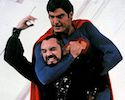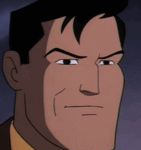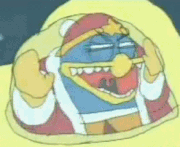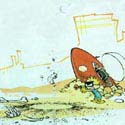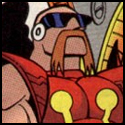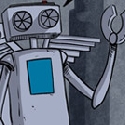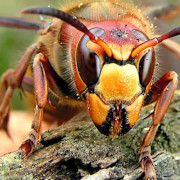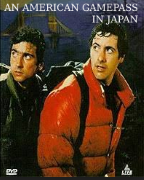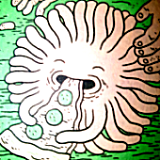|
ThermoPhysical posted:I forgot this existed. I tried REALLY hard to forget.  
|
|
|
|

|
| # ? May 28, 2024 00:13 |
|
ThermoPhysical posted:It was better than Guardians of the Galaxy, Vol. 2...though every movie I've seen this year that WASN'T GotG2 was better than GotG2. That includes Justice League. The story on GotG2 was really loving bad and too jumpy. At least JL was fun. GotG2 was better than the first one and possibly the best action movie I saw this year. Fight me.
|
|
|
|
SatansBestBuddy posted:GotG2 was better than the first one and possibly the best action movie I saw this year. Fight me. It's the best MCU movie I've seen. (I have only seen three MCU movies and one of them was GOTG 1; the other one was Avengers.)
|
|
|
|
ThermoPhysical posted:No poo poo. (haha) It was quite refreshing to not have to sit through it again. is it still commie/anti-toxic masculinity propaganda? I hope so.
|
|
|
|
https://twitter.com/darkhorizons/status/943564657901441024 🤨🤔🤨🤔🤨🤔
|
|
|
|
Are they doing that thing where they reveal why the Grinch hates Christmas again?
|
|
|
|
won't lie, it's a cute design, but I'm leery.
|
|
|
|
That looks like poo poo.
|
|
|
|
Benedict Cumberbatch is voicing the Grinch, so I'm worried we're gonna go into another Onceler situation where people just get thirsty as hell.
|
|
|
|
That design looks awful and all I can see is an emoji with a weird skinny body. I don't like it.
|
|
|
|
4D HD grinch boners flinging themselves through time ‘n’ space
|
|
|
|
The problem is the eyes. The weird proportions are whatever, you could make that work, but the Grinch is not supposed to look adorable, he's supposed to look creepy and smug.
|
|
|
|
I mean I assume with a design like that they're going for some kind of origin story about why he hates Christmas which sort of justifies him looking like a cross between a green kitten and a baby but then you're making an origin story which is bad enough by itself.
|
|
|
|
Petition to establish this wide eyed and slack jawed look of vague astonishment as if to imply wonder as the Illumination Face.
|
|
|
Tuxedo Catfish posted:The problem is the eyes. The weird proportions are whatever, you could make that work, but the Grinch is not supposed to look adorable, he's supposed to look creepy and smug. Is the Grinch the one proper application of the Dreamworks face?
|
|
|
|
|
They are adding a thing for the movie where the Grinch makes little clones of himself that are the size of minions and they all talk in the same minion gibberish. They replace the dog edit: Wait didn't they already release a teaser of how adult Grinch will look? It looked perfectly fine, they are just... doing a Grinch origin story for... some... reason. edit: I can't find a clear picture of him besides closeups of the face but: 
Macaluso fucked around with this message at 00:46 on Dec 21, 2017 |
|
|
|
The proportions on the face are inverted. Instead of no eyes and all grin (like a crocodile, as the song says) the little Grinch is all eyes and no mouth.
|
|
|
|
What's the consensus on Jim Carrey's version of the Grinch
|
|
|
|
 Calaveron posted:What's the consensus on Jim Carrey's version of the Grinch It's real bad. Like it's not quite as terrifyingly awful as the Mike Myers Cat in the Hat movie but it's just really gross and unpleasant and abrasive in that late-90s/early-00s Shrekish way. It has a key party joke for cripes sake.
|
|
|
|
I hate it. Jim Carrey was fully capable of doing all the Chuck Jones-eque faces, instead of having the Grinch be grouchy over a loud and gaudy party by people who apparently never realized they had neighbors, they shoehorned a ridiculous backstory and made the Whos into cruel jerks, especially with how Cindy Lou Who gets treated like a Pariah for being a little kid trying to be nice. Between it and Meyer's Cat in the Hat, Dr. Suess' widow was correct in revoking all rights to make live-action takes on his works. And for a Dr. Suess movie, everything just looks so dark, and grimy, and dreary even during festivities. Robindaybird fucked around with this message at 01:34 on Dec 21, 2017 |
|
|
|
Apparently the Grinch makeup was so agonizing to wear that Jim Carrey had to take torture survival classes from the CIA. All that suffering for nothing worthwhile.
|
|
|
|
It would be shoe-horned if it were still a children's book. You're making a feature-length film, you're already gonna have to interpret and embellish somewhere. And in that regard, the filmmakers actually did exceedingly well in basically just fleshing out the bare bones concepts that were already in the picture book. It's not like The Cat in the Hat at all where there's explicitly no message except that nonsense is fun and that kids can act responsibly in the absence of conventional authority, so all they could really do was make the Cat into an even more tawdry and transgressive figure whose schtick just gets stretched out in a medium that really isn't lacking in much more inspired nonsense, particularly the early Tim Burton films that are both films' clear inspirations. With How the Grinch Stole Christmas, on the other hand, you actually have a much more straightforwardly didactic parable about a bitter outsider who only thinks he hates Christmas because he's alienated from its communal foundation. So as a writer, you have a lot of questions that you immediately ask yourself, and have to if you're going to make a proper feature and not just something more like The Cat in the Hat, i.e. the book, except longer and dirtier: Why is the Grinch alienated? What about the Whos? We don't really get an idea of their inner lives at all, there's a tremendous amount that occurs with them exclusively off-screen. How do they react to seeing all their poo poo taken? Do they just immediately not care, or does something else happen? The 2000 film just addresses what was always the concern that informed Geisel's writing, which is that same thing as Schultz, worrying that the commercialization of Christmas was alienating people from its religious foundation. So of course if you're making a film, the cat's out of the hat: the problem was never the Grinch, the problem was the Whos. Society is what constructs, teaches, and enforces values, the Grinch is not just some humbug who doesn't get it, he hates the Whos for a reason.
|
|
|
|
Better or Worse: 
|
|
|
|
Wittgen posted:Apparently the Grinch makeup was so agonizing to wear that Jim Carrey had to take torture survival classes from the CIA. All that suffering for nothing worthwhile. I'm sure Carrey gets a nice fat royalty check every January.
|
|
|
|
If anything, the Cat in the Hat movie has great production design. The sets really look like a Seuss book.
|
|
|
|
I enjoyed Carrey just chewing on the scenery. The gag about him pulling out a table clothe without dropping anything and then running back into frame to manually throw everything off the table still gets me to this day
|
|
|
|
Waffleman_ posted:If anything, the Cat in the Hat movie has great production design. The sets really look like a Seuss book. you should really go to Universal Studios in Orlando if you want to check out an awesome Seussian land, the little theme park area they have dedicated to Seuss is very magical and got the widow Seuss' seal of approval. and then you can go remember what comic books were like back in the late 1990s in the same park, like magic!
|
|
|
|
K. Waste posted:It would be shoe-horned if it were still a children's book. You're making a feature-length film, you're already gonna have to interpret and embellish somewhere. You don't seem to realize the logical leap that you're making here. Yes, How The Grinch Stole Christmas is a straightforwardly didactic parable in all its incarnations, but the movie isn't building on or embellishing the book - it's tearing down the original idealistic pro-community message in favor of a significantly simpler cynical anti-commercialism one. The movie doesn't reaffirm the book's message in more detail so much as it deconstructs it through an adolescent mindset and creates nothing of value in return. Put a simplistic traditionalist morality play into the Hollywood "What Is A Family Message Movie" machine, get out a man performing analingus on a dog as a bunch of actors in ugly masks sneer to demonstrate how stupid you are for buying products to make your family happy, such as the merchandise you're inevitably going to buy that's tied in with this lovely film. (The How The Grinch Stole Christmas movie, incidentally, should be entitled "A Man Performing Analingus On A Dog".) The Cat In The Hat is a terrible movie, but it's actually much better than How The Grinch Stole Christmas because it heightens that film's contradictions until even a typical member of the artistically illiterate public can tell what a soulless failure to understand the original story's themes and aesthetic it is. The Cat In The Hat is like a bad SNL sketch about what a bad movie How The Grinch Stole Christmas was, except stretched out to an interminable 85 minutes. For this reason, it is a significantly better film than How The Grinch Stole Christmas. The Lorax (the book, that is) is Seuss doing anti-capitalism. He's quite blunt about it when he is; he is, as you indicate, a writer of simple morality plays. The Lorax is great art, and How The Grinch Stole Christmas is great art. Capitalism is not a part of HTGSC's moral universe. You need to reach extremely hard to find it, and if you find it in the Whos, then I feel the need to remind you that the Whos aren't the villain of the piece, they're the moral center, the title character is the villain. In fact, if you frame HTGSC in terms of capitalism, then the Grinch is the capitalist character in the original story, the one who doesn't realize that Christmas is about something infinitely greater than commodities, the one who has to learn that lesson. The Whos don't bitch and moan about their presents being stolen in the original story, and it's not for lack of page space - it's because that's literally the opposite of the very simple characterization that Seuss established for them. How The Grinch Stole Christmas is about a misanthropic recluse realizing that he misjudged humanity based on a superficial assessment, not about one little girl singing a procedurally-generated Christmas pop song and then overthrowing her dystopian society of weird superficial mutants. How The Grinch Stole Christmas, the movie, sees the world essentially the same way that the Grinch from the book did, and the entire point of the book was that he was wrong. I hate Illumination. Minions are beyond obnoxious and their popularity says very bad things about our future. Illumination's take on The Lorax was artistically loathsome. But I hardly see how their take on HTGSC can be worse than the live action film unless they go out of their way to make it terrible - which they won't because their entire thing is mediocrity.
|
|
|
|
It was funny when the mayor who kissed the dog's rear end in a top hat reintroduced the Grinch's mothers to the Grinch and he grimaces YOU STILL LIVE to them
|
|
|
|
The original Grinch is definitely a little anti-commercialism in the sense that at the end, the good guys declare that Christmas isn't about presents. It does seem weird to dump on the Whos though. They didn't even know the Grinch existed, it's not like they deliberately shunned him. And when he robbed them they didn't even retaliate, they just did their thing, because they did understand the true meaning of Christmas all along, even though they also gave presents because they wanted to. The Grinch represented someone who hated Christmas due to a false impression he got of it from afar, and never bothered to have a conversation with someone to find out how they really felt about it. So basically he's someone posting articles on Facebook instead of talking to people. Or maybe he's more like an incel Sir Lemming fucked around with this message at 04:10 on Dec 21, 2017 |
|
|
|
21 Muns posted:You don't seem to realize the logical leap that you're making here. Yes, How The Grinch Stole Christmas is a straightforwardly didactic parable in all its incarnations, but the movie isn't building on or embellishing the book - it's tearing down the original idealistic pro-community message in favor of a significantly simpler cynical anti-commercialism one. The movie doesn't reaffirm the book's message in more detail so much as it deconstructs it through an adolescent mindset and creates nothing of value in return. Put a simplistic traditionalist morality play into the Hollywood "What Is A Family Message Movie" machine, get out a man performing analingus on a dog as a bunch of actors in ugly masks sneer to demonstrate how stupid you are for buying products to make your family happy, such as the merchandise you're inevitably going to buy that's tied in with this lovely film. (The How The Grinch Stole Christmas movie, incidentally, should be entitled "A Man Performing Analingus On A Dog".) The 2000 film also has an idealistic pro-community message - it achieves this by actually showing a community coming together in the wake of a social disaster and realizing what's actually important, and this event warming the cold heart of the embittered Grinch. Again, the only thing that the film adds is the nuance that the Grinch is not simply this ghoulish Other. He is a product of the society that raised and abused him. And even in this context, the film concludes that the redemption of both parties is possible. You seem to be under the impression that capitalism is only part of a narrative if, like, characters are literally shown exchanging money and setting up factories or something. But the symbolic order of How the Grinch Stole Christmas is clearly capitalist, in that it's a story from 1957 about Christmas. Where do the toys come from, the decorations? Who manufacturers the instruments? How do the Whos live? When the Grinch imagines how the Whos celebrate Christmas, he does not picture a bunch of peasants sitting in a mud hut handing out sugar-plums and such. He imagines a very modern kind of extravagance, with lavish feasts that, while once the domain of the upper-class, are now more common among the post-war American middle-class; and instruments and playthings that parody the mass-produced commodities of the modern American economy. Capitalism is clearly a part of the symbolic order of the narrative because this is precisely what gives the holiday the boisterousness and extravagant omnipresence that the Grinch hates. The whole point is that he can't escape, the festivities of this small town echo all the way up to the snowy crags of Mt. Crumpit. Your preoccupation with presenting the Grinch as a misanthropic recluse is, more accurately, an insistence that he should remain a ghoulish other whose behavior is not rooted in ideology, that the generic Whos should remain this magical and blameless community. But changing these details in the feature film does not actually undermine the message that the importance of Christmas is communal as opposed to materialistic, nor that even the most bitter hearts can be changed by compassion and love. Rather, the only thing that changes is that you are no longer able to project onto the Grinch all your anxieties about the vulgar nature of Christmas. The Grinch only exists because Christmas is already inherently insubstantial. It is consumed in materialism, it does not spontaneously produce the magical and perfect community of the Whos. The Grinch itself is a spontaneous creation so that the Whos can have their perfect, magical community, so that the 'true meaning of Christmas' can be discovered.
|
|
|
|
The Grinch is just a dude with a migraine who wants to sleep in and the Whos are like your rear end in a top hat uncle who buys your kid a drum kit because he know he won't have to hear it all day. If anyone got the Grinch some earplugs and looser socks we'd probably sidestep the issue entirely.
|
|
|
|
Benedict Cumberbatch does not have the voice to be a Grinch I can respect. Please exhume Boris Karloff and Thurl Ravenscroft and raise them from the dead before we even start talking.
|
|
|
|
Calaveron posted:What's the consensus on Jim Carrey's version of the Grinch It's not good in the traditional sense but I have a huge soft spot for it as the bad christmas movie we put on in the background every year at my friend's christmas party. It has a bunch of over the top jim carrey lines that are very fun when you have a room full of drunk people that know every line. Things like the grinch's answering machine message, or him reading the phone book and listing people he hates, or meeting the old ladies who raised him for the first time in years (*disgusted* "Are you two still living?") Wittgen posted:Apparently the Grinch makeup was so agonizing to wear that Jim Carrey had to take torture survival classes from the CIA. All that suffering for nothing worthwhile. If you look at his eyes you can see that the big yellow contact lenses have irritated them so much that they are genuinely deep red and inflamed where the lens ends.
|
|
|
|
Owlofcreamcheese posted:Better or Worse: As someone who played a lot of that game as a kid; nothing can be worse.
|
|
|
|
K. Waste posted:The 2000 film also has an idealistic pro-community message - it achieves this by actually showing a community coming together in the wake of a social disaster and realizing what's actually important, and this event warming the cold heart of the embittered Grinch. Again, the only thing that the film adds is the nuance that the Grinch is not simply this ghoulish Other. He is a product of the society that raised and abused him. And even in this context, the film concludes that the redemption of both parties is possible. This falls apart in that A) The Grinch being a "Ghoulish Other" is clearly a deliberate choice on Seuss's part, and is vital to the original story being what it is. Recasting him as the kind of person who is othered by modern society misses the point; the film wants to be the Wicked of How The Grinch Stole Christmas, which would be a bad enough idea if not for the fact that it's selling itself as a straight adaptation and doesn't seem to realize that it isn't. B) Given that the Grinch of the original story is clearly intended as the immoral center of its simple morality play, and given that Seuss was not a big fan of capitalism, the Whos are clearly not meant to represent a capitalist economy. You can invoke Death Of The Author and point out that the things that annoy the Grinch are by and large the products of capitalism, but even this isn't a good argument - he's not annoyed by the bosses overworking their factory workers, he's not annoyed by the storefronts pushing their wares, he's annoyed by the people celebrating; perhaps their implements are uniquely capitalist but their activity is not. C) The Grinch having a serious complaint against the Whos, when his entire original characterization was that he was blinded by irrational hatred, undermines the story. The Whos seriously struggling with the question of whether Christmas is about more than presents, when the entire point of the story's original climax is that the Grinch is shocked by how easily they come to terms with being robbed because they already know that Christmas is about more than presents, undermines the story. The Grinch teaching the Whos the true meaning of Christmas, rather than the other way around, undermines the story. Do you see the general theme here? The movie isn't, as many of its defenders including yourself claim, an expansion of the book motivated by the book's being too short to fill a cinematic runtime. It's a crude thematic reversal and criticism of the book, and your defense of it is mostly you reiterating its criticisms, which are sufficiently cynical and sophomoric that they essentially fit into the (pre-redemption) worldview of the original book's Grinch. D) This is a movie that genuinely hates its source material for being too idealistic and naive. It genuinely hates its target audience for being stupid enough to watch it and buy its merchandise, but rests easy with the deep conviction that they're stupid enough to watch it and buy its merchandise anyway, because unfortunately many of them are. It is deeply aesthetically ugly, in a way that indicates that it does not give even the slightest poo poo about Dr. Seuss's groundbreaking art style and writing. It contains numerous weirdly transgressive sexual references, which I guess are a little bit funny in the context that Dr. Seuss cheated on his cancer-stricken wife and drove her to suicide (really, he's a great artist but a terrible person), but are presumably less for the target audience to laugh about and more for the filmmakers to win bets about what they can get past the censor board. In so many ways it's the epitome of the soul-crushing nature of the Hollywood machine; I'd kind of respect it if not for the fact that The Cat In The Hat outdid it in every regard a few years later and put an end to the whole charade.
|
|
|
|
The sight of the Whos celebrating causes him to leave Mt. Crumpit to join with them.
Schwarzwald fucked around with this message at 05:59 on Dec 21, 2017 |
|
|
|
Schwarzwald posted:The sight of the Whos celebrating causes him to leave Mt. Crumpit to join with them. Yes, but the sight of the Whos celebrating was what drove him to systematically rob them in the first place. He's not thinking "finally, now they're celebrating the right way, without gadgets, my plan to set them straight has succeeded", he's thinking "wait, they didn't need gadgets to celebrate in the first place? their happiness was so great that I failed to make a dent in it?". It shatters his worldview, pushes him over the edge, and causes him to cross over and allegorically convert to their religion.
|
|
|
|
21 Muns posted:This falls apart in that A) It is not possible to deliberately create a character who is an Other, who is simultaneously not Othered. The 2000 film does not 'recast' the role of the character, it acknowledges what was always implicit in the text. Whether Geisel intended for his character to be read as a victim of bigotry doesn't matter. Intent is not the same thing as meaning, and the film's acknowledgement that the Grinch is an anti-hero is literally no different than how the Chuck Jones short gave him a slick, jazzy showtune which is contrasted with the ethereal, classical caroling of the Whos. You are preoccupied with how the film 'sells itself,' rather than what straightforwardly happens in the film and the texts from which it's adapted. You are preoccupied with whether it adheres to 'the point,' rather than the prospect that, with an adaptation, with have the opportunity to expand upon the point, and even challenge it. B) I did not write that the Whos "represent" a capitalist economy. I wrote that the symbolic order of the book is capitalist, that the book as popular art is unmistakably the spontaneous product of a capitalist society. As with your insistence that acknowledging that the Grinch as an Other depreciates the message of the text, you are engaged in a process of beating around the bush so that no ideological critique can be rendered. You are under the apprehension that capitalism isn't relevant because it's not explicitly mentioned. That's not how ideology works. The entire structure of the story - that the Grinch is this misanthropic humbug who is blinded and deafened by the extravagance of Christmas from seeing its religious meaning - is in itself a spontaneous, unique product of a capitalist society. The Grinch is not like Scrooge, a miser who explicitly rejects spirituality and favors materialism. It's the opposite way around - the Grinch has no access or perception of the spiritual dimension of ritual because all he perceives is materialism and commodity. C) You have claimed that a lot of these things undermine the story, but do not demonstrate how. What you are preoccupied with is that they deviate from the source in order to portray the same basic narrative in a more dramatically nuanced matter. The Grinch in the film does not perceive that the Whos take, like, a few minutes more to realize what Christmas is about. He's up on the peak of Mount Crumpit, and hears them singing, just like in the original story. Your understanding of cynicism is that it applies to a scenario where you take a story where the characters are written a certain way, and then, without changing anything else in terms of how the events of the story transpire or how this leads the characters to moral conclusions, is critical about how certain tropes in the story are expressive of ideology. But that's not what cynicism is. Cynicism is the position that people are only motivated by self-interest. It is what you are doing by going on and on in fantasizing that the film hates the source material and hates the audience and so on. The film tacitly rejects cynicism. The Whos can have a kind of hosed up social structure that breeds malcontents... But that doesn't mean that life is meaningless, that the ritual is without value, that wrongs can not be righted, that sinners can not be redeemed. D) Weird thoughts. 21 Muns posted:Yes, but the sight of the Whos celebrating was what drove him to systematically rob them in the first place. He's not thinking "finally, now they're celebrating the right way, without gadgets, my plan to set them straight has succeeded", he's thinking "wait, they didn't need gadgets to celebrate in the first place? their happiness was so great that I failed to make a dent in it?". It shatters his worldview, pushes him over the edge, and causes him to cross over and allegorically convert to their religion. Well now we get to the heart of it: You are upset that the 2000 film is not about a blameless Christian society that saves a bitter atheist. The film commits the cardinal sin of suggesting that, if the Whos are marginalizing those who look and behave differently from them through bigotry, they are fundamentally not with Christ, and can only find Christ again by giving up their worldly possessions into the hands of the poor. Notably, in this version of the story, Cindy Lou is transformed from a po faced baby to a perceptive and intrepid girl who knows what the Grinch is doing, but lets him do it anyway.
|
|
|
|

|
| # ? May 28, 2024 00:13 |
|
The issue is not that the film is not completely identical to the source material; the issue is that the film's additions to the source material put it at odds with that source material. (Indeed, the cartoon is also not identical to the book, and you don't see me complaining about it - it's not because its alterations to the book are merely smaller in scope, but because they are not alterations to the core of the story at all.) The book doesn't merely neglect to mention why the Grinch hates Christmas - it makes the bold moral claim that it doesn't matter. I don't care that the film's changes don't always contradict the content of the book, because they do always contradict the book's intent - if you retell an old fairy tale, and you don't change any of the details, but you merely add new details that reframe the story to flip its morality, then no one cares that the original fairy tale is still technically intact somewhere in there, you're still the Edgy Fairy Tale Reboot Guy that everyone laughs at.K. Waste posted:Your understanding of cynicism is that it applies to a scenario where you take a story where the characters are written a certain way, and then, without changing anything else in terms of how the events of the story transpire or how this leads the characters to moral conclusions, is critical about how certain tropes in the story are expressive of ideology. But that's not what cynicism is. Cynicism is the position that people are only motivated by self-interest And under this definition, the film is indeed choked by its cynicism towards the source material. It does a last-second turn-around where the Whos attempt to emulate the characters from the book, but spends most of its runtime insisting that the Whos are shallow, uncharitable people who insincerely celebrate Christmas to one-up each other. These are characters straight out of the similarly miserable Christmas With The Kranks, not the innocent Whos that the book's narrative relies on. In a perverse way, its take on the Grinch's character is also cynical; the film refuses to believe that he's driven by ideological hatred and tries to make him out as some kind of revolutionary victim of social oppression trying to carve out a place for himself. And of course the film has a cynical take on the original story's author, because it's a terrible film and I cannot imagine that it was produced by people who thought of the source material as art rather than a commodity.
|
|
|






